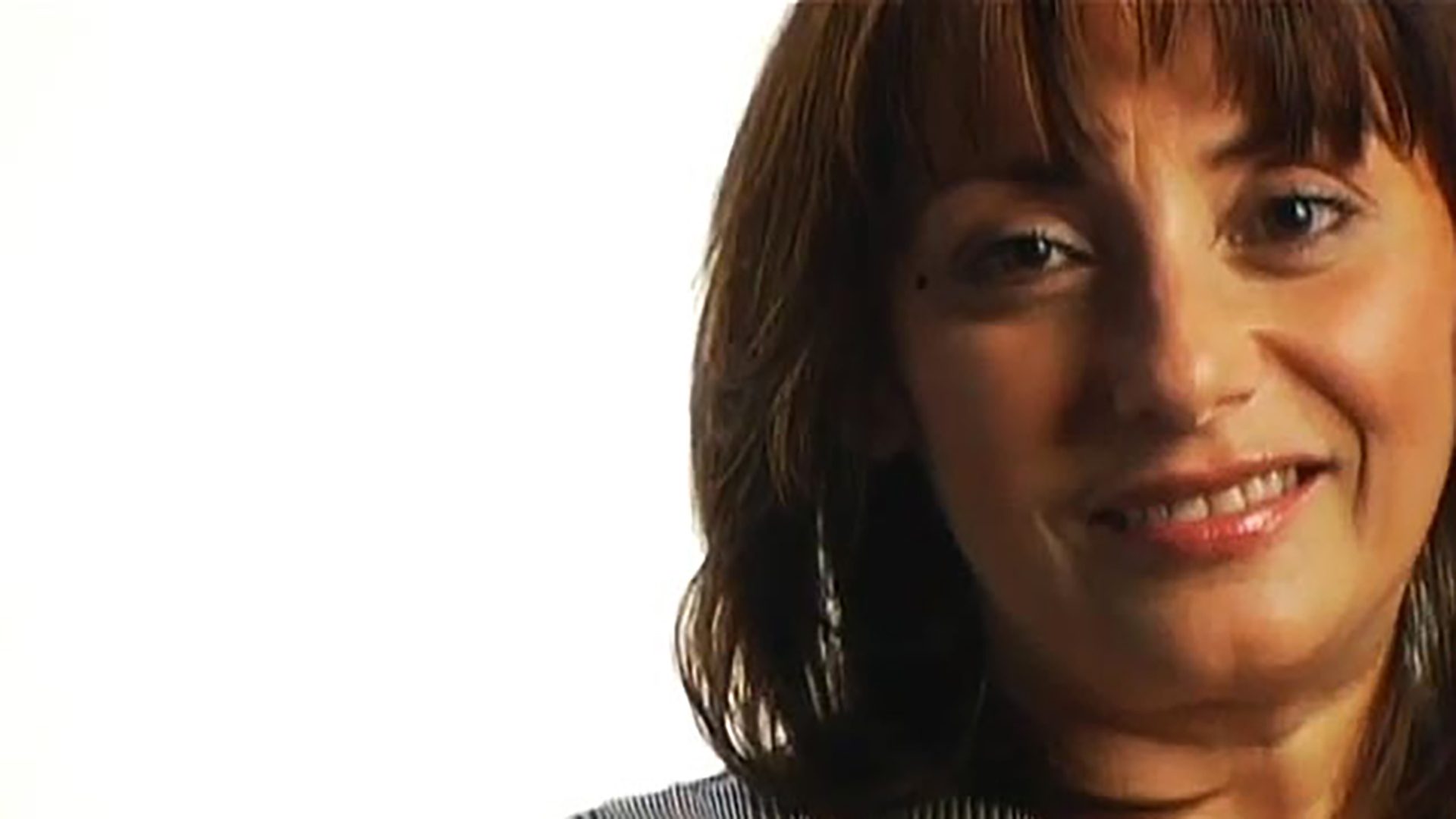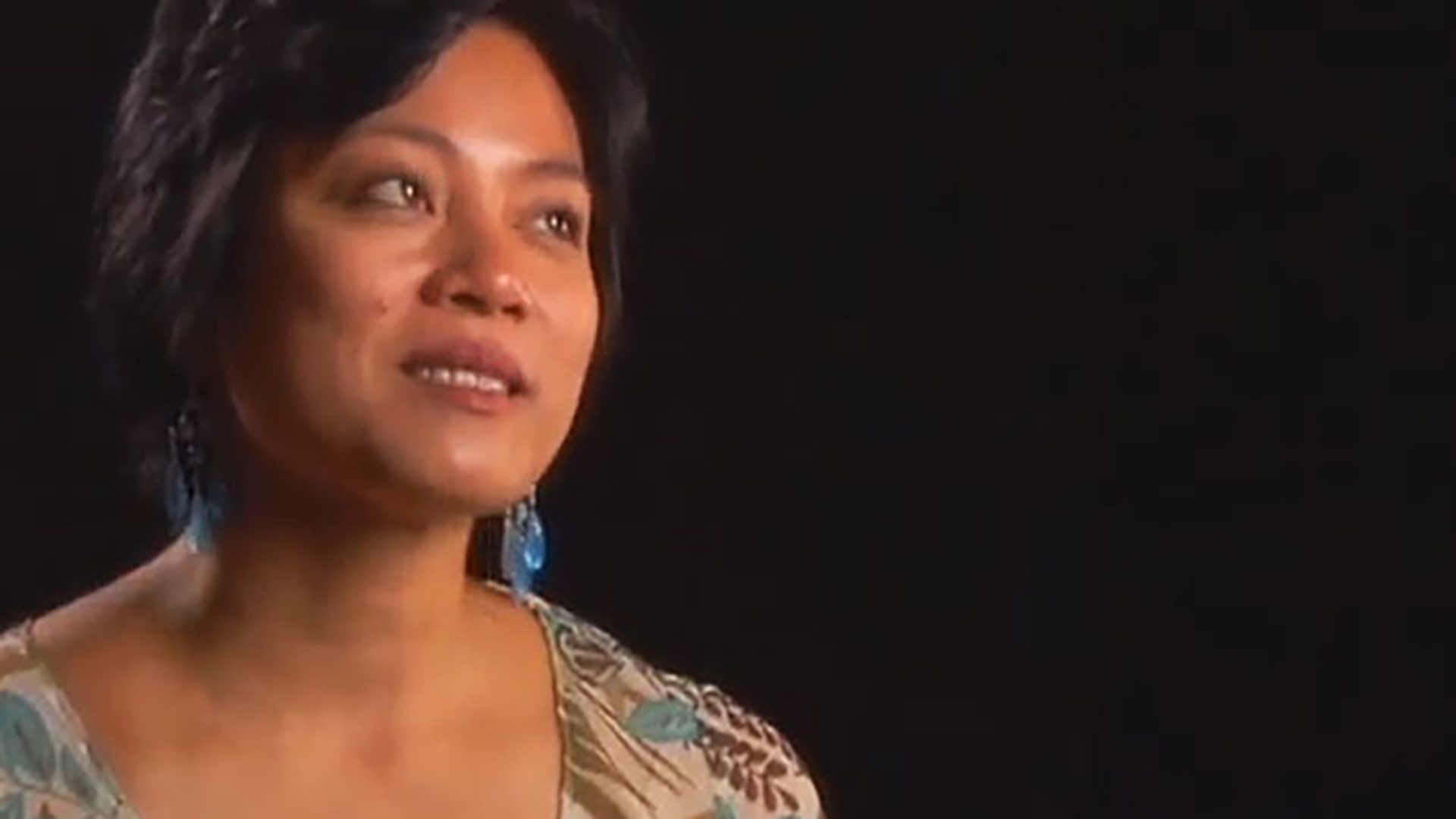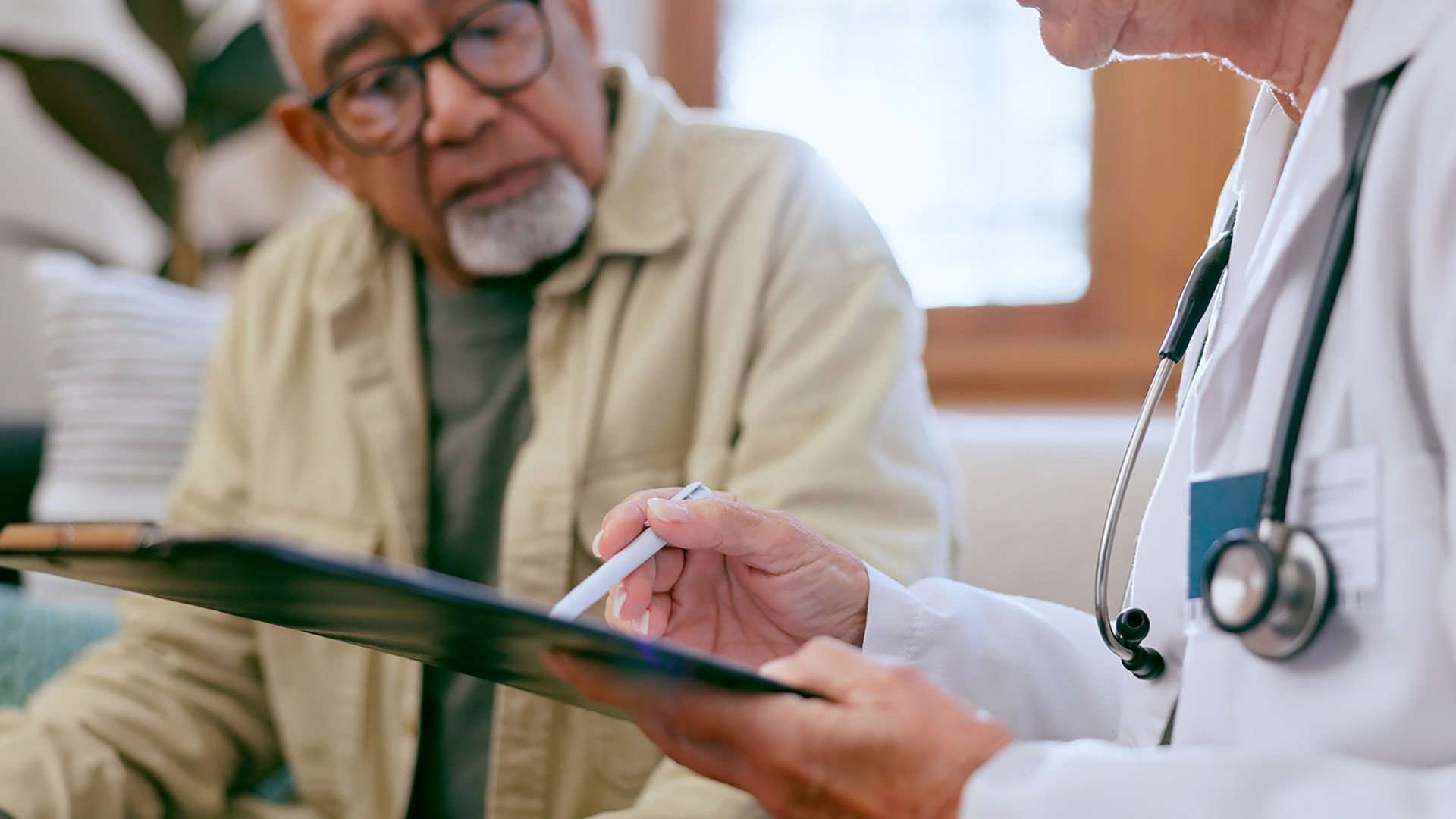Survivor Interview – Patrice G.
Patrice is a breast cancer survivor. She talks about aging and cancer, living with uncertainty, and managing stress in her life.

I became a breast cancer survivor when I was diagnosed in May 2001.
I found a lump myself and went to the doctor. It was confirmed that it was breast cancer. I insisted that they check my other breast and found cancer there as well. So I had bilateral breast cancer. I went through three surgeries, six months of chemotherapy, Adriamycin, Cytoxan, Taxol, and seven weeks of radiation. Now I’m on a five-year tamoxifen treatment, which is an adjuvant cancer treatment. I’m on my third year of that. I chose to have lumpectomies as opposed to mastectomies and implants.
I think most women are concerned about aging, but certainly somebody with my theatrical background was maybe overly concerned. My skin is no longer as taut. The chemo changed that. Lines are more visible. I think some of those may be suffering lines. That’s not a bad thing, but it’s happened so fast. Within a matter of a year, things changed quite drastically for me. That’s been challenging. There are some wonderful things about cancer and the gift that it’s given me. I believe in turning lemons into lemonade, to use an old cliché. I’ve tried to look at all the wonderful things that it’s brought me. But I’m aging a lot faster than I had been. Then again, I’m in my forties, so for all I know, it could be part of that.
We think the menopause is permanent. I found out that the chemotherapy would more than likely leave me infertile. I was already 42. Though I wasn’t diagnosed as perimenopausal, I had still hoped to have a child. That was the most devastating for me — was to know that I would probably not do that. Against my doctor’s advice, I chose to have fertility drugs. The cancer that I had was estrogen-positive, which would mean that the estrogen levels in my body would help the cancer to grow. But I did choose to have fertility drugs, have eggs removed and fertilized and the embryos frozen. I was only able to have one removed, but I do have a frozen embryo. At the time, I was single, so I did use a cryobank for a sperm donor. That gave me hope. It gave me something to fight for. I don’t know if I’ll use it. I think the likelihood is that I won’t. I am menopausal. I would have to have a surrogate. I haven’t reached my five-year period of being in remission, and I don’t think I would feel comfortable using the embryo. I’m a little afraid that if the cancer were to come back, I would leave a child motherless at a very young age.
My approach to cancer was that I wanted to be the one to make the decisions. I wanted to be the one to have no regrets about whatever decisions I made. It was ultimately my life, and I had to do what I felt was best for me. It wasn’t as though I went blindly into it. Originally, I had refused chemotherapy and radiation. I wanted to do it the complementary medicine way. But I took two months seeing doctors during that period. I took that period of time to educate myself. I buried myself in research papers, whether it was going to the library, through the Internet, videos, or books. Whatever I could get my hands on, I read. I educated myself on the particular cancer that I had with the particular aspects. Then I met with a lot of doctors: five medical oncologists, four surgical oncologists, four radiation oncologists, as well as three alternative or complementary medical doctors, who are known for their cancer treatments.
I still do complementary therapies. Along with being on tamoxifen now, I see a doctor in Beverly Hills, who is a renowned internist, practices complementary medicine and is also renowned for cancer treatments. We do microscopic blood work and thermograms to see the levels of the temperature of the different parts of my body. I don’t know all the specifics as to how everything works, but I do a lot of different types of tests for the temperature of my body, the balance, and the blood. I also do homeopathy as well as herbs from all over the world. I take vitamins. I take CoQ10 for my heart and Omega III to help the fat digest. I take a lot of things to help the nervous system.
When my radiation ended, I cried a lot, because I felt like I had been going through treatments for almost a year. I was on a journey, and it ended. I have been diagnosed with post-traumatic stress syndrome by my therapist, as well as my oncologist who suggested that I might look into that. I think one of the things that has happened for me is that becoming part of the living has been to some extent challenging in the sense that when I was going through the treatment phase, I felt as though I was doing something to fight against the cancer. Knowing that breast cancer has no cure, and that it can really come back at any time, I try not to live with that on an hourly basis. I try to be more positive and live moment to moment.
When I hear that somebody else has passed away from it or when somebody else has had a recurrence, I can’t help but wonder if that’s going to be my fate. I think it’s natural. It’s part of my healing process. There’s a part of me that feels like I was a warrior during the treatment, and now I’m a warrior without the war. I don’t have a battle to fight right now, and that feels uncomfortable to feel like a warrior without necessarily knowing where the battle is, if there is a battle at all. It’s that feeling of unknowingness that is not so comfortable. Since the treatment has ended, my journey has been certainly a much more emotional one, where questions and fears of a recurrence or a new occurrence come up and what that might mean to my life now.
I worry about stress levels. My understanding is that cancer can be related to stress. So I try to look at the stress levels in my life and what I can do to better manage when there is stress in my life due to work, school or family issues. How am I managing that? Sometimes I’m good about that and sometimes I’m not so good at managing it. In therapy, I talk about that and how to better manage my stress, how to better manage the fear, how to better manage the anger, how to let it out productively, constructively. It’s easy to say, “You are cancer-free or at least you’re in remission,” which essentially is what they’re saying when they say cancer-free. You can go on about your daily life, but then you have to go to the doctor every two or three months and some six months. When that comes around, especially right before I have a doctor’s appointment, I do start noticing changes in me.
I had decided about five months after treatment that I wanted to start dating. I was happy to be alive and wanted to find someone to share my life with. I decided to go online through a dating service. I had always been embarrassed to even do that, but I thought, “What do I have to lose? This is just as good a way of meeting people as any other.” I was very honest right up front. I wanted to give them a choice, as opposed to dating someone and then saying, weeks, months or even days into dating, “By the way, this is what’s going on.” I would tell them, “I need to tell you that I have just recently undergone cancer treatment, and I’m five months in remission. I understand dating is difficult or at least challenging enough without an added element. I’m still seeing doctors, and it’s still so present and such a huge part of my life that you need to have the choice.” By and large, most people were very, very open to dating. There was a handful that it really did scare them, and that’s understandable. I did meet some wonderful people, who were courageous enough to say, “I think I would like to meet with you and to see what might happen.” That is how I met my fianc\u00e9. I told him right up front on the phone, and he immediately told me that he was okay with that. He was very supportive right away. He said, “You’re a remarkable person for telling me right up front, so I’d like to meet you.” And we did.
My name is Patrice Grullion, and I’m a three-year breast cancer survivor.

